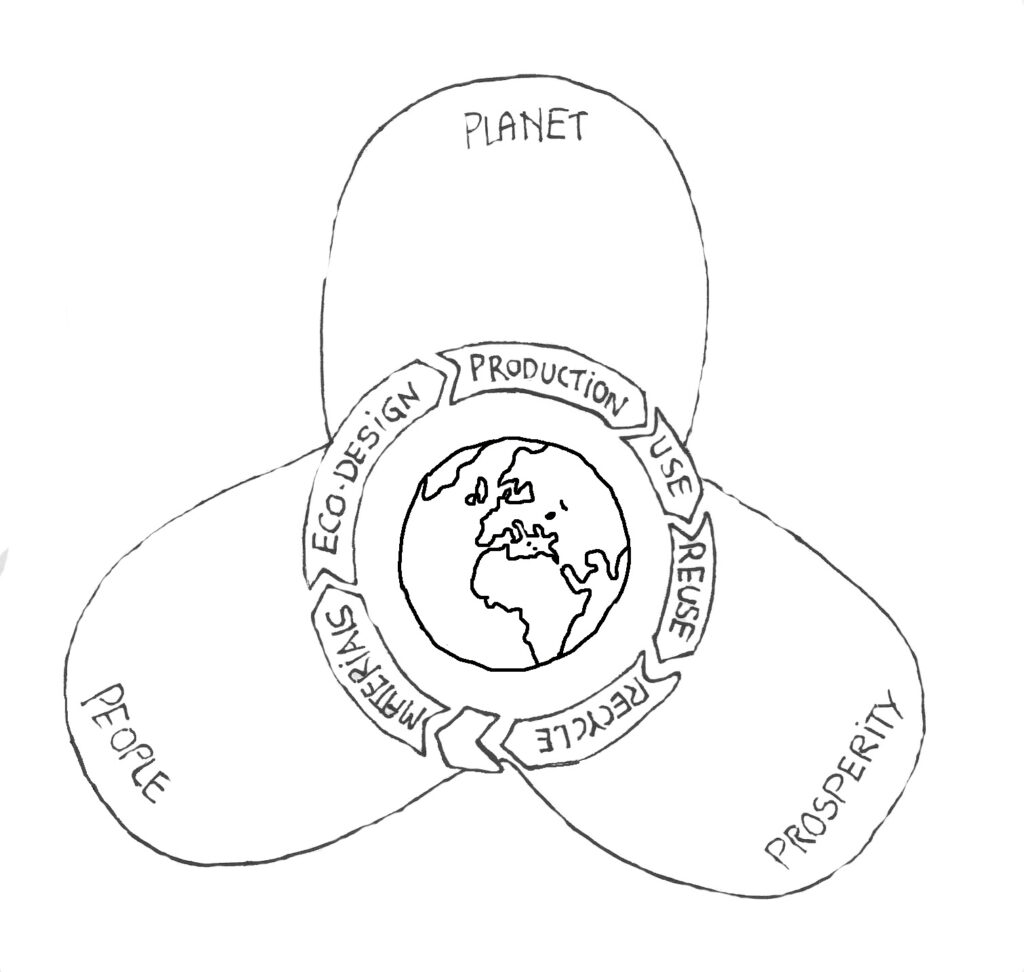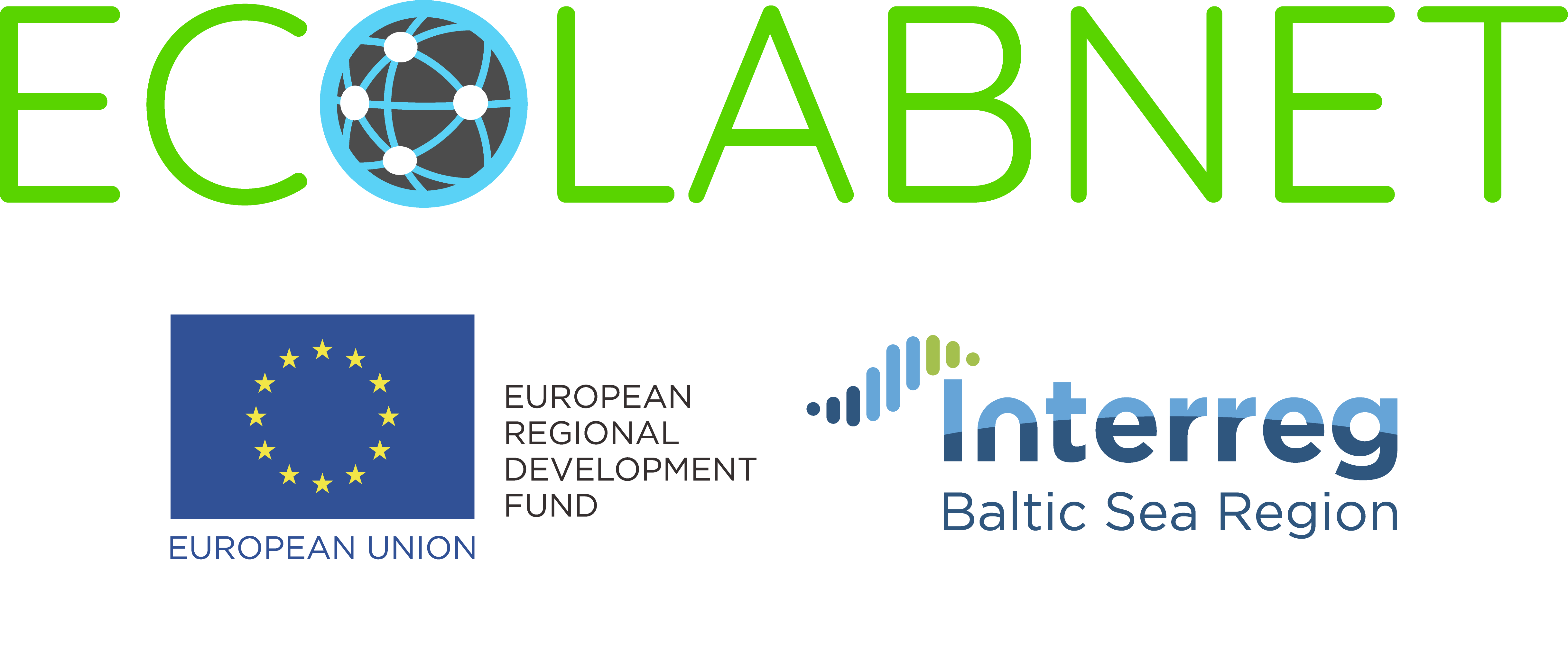Why is VIA University involved in Interreg Baltic Sea Region Ecolabnet project?
By Per Tøffner Knudsen, VIA University
“Sustainable Marketing (SM) is principled and predicated on the foci of the triple bottom line. SM decisions should be ethically and ecologically sound and companies should divert profits into people and planet foci to enable implementation. Sustainable business practices must be informed by continuous dialogues with all stakeholders. Ultimately, this is the only way to resolve the tensions between customer (and stakeholder) demands, long-term interests, companies´ requirements, society´s long-run interests and the need for environmental balance”
- PhD tesis by Niel Richardson – professor at Leeds Business School
The triple bottom line balance respect to a sustainable planet, respect to social responsibility in governance of work force with respect to financial prosperity. Prosperity in other words creates the ability to invest in sustainability and social responsibility and therefor increase future pace of circular economy.
Opinion leader perspective:
Opinion leaders from all stakeholder groups show an increasing interest in preserving environment and reducing social inequality. Politicians negotiate increasing focus on environmental and social respect. Opinion leaders among consumer groups increase pressure on companies by suggesting followers to change buying habits to the most responsible brands.
The starting point of Ecolabnet:
In order to investigate where SME challenges are the largest with respect to the transformation from linear economy to circular economy, Via University initiated a survey together with the other Ecolabnet partners.
The response from survey:
The process has been to fulfill an analysis of the needs among production SME´s within the field of Eco-Innovation. The analysis included a survey with 296 respondents, 189 respondents fulfilled the full survey, of these respondents 152 respondents were from production SME´s and personal interviews conducted with 29 respondents resulted in the following findings:
The perceived barriers of becoming more sustainable was:
- Lack of information about available financial resources
- Lack of information about alternative new materials
- Lack of information about costly eco-certificates and legislation
- Lack of certainty on the economic return on eco-investment
The perceived urgent needs for information was:
- Information on new sustainable raw materials
- Information on financial consequences of developing sustainability
- Information on relevant Eco-certifications
- Information on sustainable production methods – especially 3D print
The preferred development process should include access:
- To consultancy
- To technology development
- To networking with fellow entrepreneurs & universities
- To applying financial support from e.g. EU/local government
- To trainings
- To latest research
- To approaches to commercialization
The process of transformation:
Transformation from a linear economy to a circular economy requires a change of approach from “Taking scarce resources – Making short lasting products – and wasting the products after use” to “Re-use – Re-distribute – Re-furbish – Re-cycle” and successfully create the new sustainable Brand Image and Brand Identity. Aspects that require knowledge of the supply and consumption process from harvest of raw materials to final scrap of products after use.
Via University as a resource in circular economy:
The core focus of Via University is optimizing supply chain activities, from forming the initial creative thought in design to delivering the final product to the consumer. Available science (J.A. Barton et.al. 2001) argue that design decisions may determine up to 70% of the lifecycle cost of a product – updated science on the matter is still very deficient. Lifecycle costs being economic costs as well as environmental and social impact based upon that design decisions influences selection of supplier, production method and marketing and sales decisions. At Via University, we believe in a holistic approach in order to prosper – with focus on lifecycle cost.
The ambition:
The ambition of Via University is to provide local production SME´s with knowledge, skills and competences within eco-business models based on circular economy philosophy.
With regard to Ecolabnet the core competences of Via University Design and Business are:
- Design of sustainable tangible products based on alternative sustainable raw materials e.g. new natural fibers, recycled fibers and Bio-de-gradable fibers, furthermore design of sustainable business models including innovation inspired by Lean and Six Sigma principles and finally Branding of eco-business models.
Via University believe in these changes as a new mega trend and see it as a responsibility to inspire the SME´s to correlate with the changes within the community of Interreg Baltic Sea Region.
Important questions may be:
What benefit could your company have by changing from a linear economy to a circular economy?
Whatever challenges you face VIA University can support you in the process.

